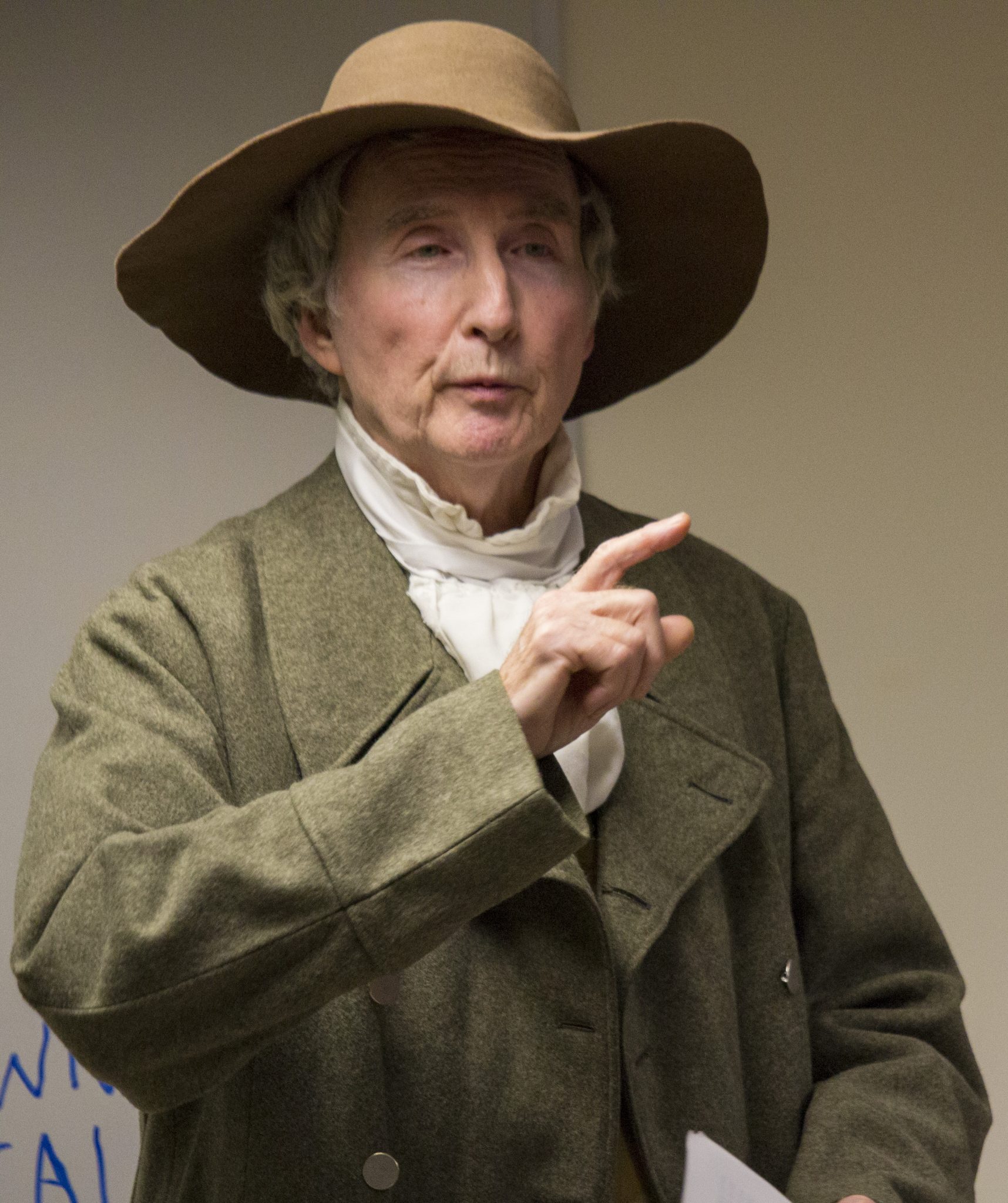Bordentown patrons had the opportunity to step back in time to hear stories, tales and accounts from one of the country’s – and Bordentown’s – most notable historical figures.
Sponsored by the Bordentown Historical Society and Bordentown Library Association, approximately 50 locals attended a Dec. 28 event at the Bordentown Library to witness a reenactment of English-born American political activist, philosopher, political theorist and revolutionary, Thomas Paine, portrayed by actor Robert Gleason.
Garbed in 18th century clothing, which included a grey frock coat, breeches, stockings and a beige wide brim hat, Gleason spoke from the persona of the famous “Common Sense” author to the event attendees.
He recounted tales of Paine’s young adult life in England and experiences as a stay maker, his journey to Colonial America, and touched on the background of Paine’s popular works as well as reminisced on conversations with other historical figures from the Revolutionary War period.
As Gleason captured the room’s attention with poise and wit in his voice, he brought some of Paine’s life back to the present with bold stories of his times in Bordentown where he once owned property on Farnsworth Avenue. He is now commemorated by a stone statue on Prince Street.
Gleason also demonstrated a personal side of Paine who was outspoken and sometimes controversial during his career as a political activist, author, revolutionary and a signer of the Declaration of Independence.
Alongside “Common Sense,” some of Paine’s other famous writings included “The Rights of Man,” a work urging political rights for all men because of their innate equality, and “The Age of Reason,” a deist manifesto. The impassioned author championed the causes of the individual and of the mind.
Gleason, an actor for the American Historical Theatre, has presented programs featuring more than 100 historical figures, stretching over 2,000 years of history.
He has performed at notable sites such as the White House Visitors Center, The Smithsonian Institution, Constitution Hall, George Washington’s Mount Vernon, Ford’s Theatre, Independence Hall, The National Constitution Center, The Union League of Philadelphia, Valley Forge National Park, schools, libraries and other venues.
For Gleason, he said he felt taking on the role of Paine for performances like this are significant to people’s understanding of American history.
“They are fascinating stories, and some young people today are watching these epics about things that never happened and could not possibly happen,” Gleason said. “They are ignorant of their own history, which in its own way is just as exciting, interesting and inspiring as any of these epics that did not happen. That’s what we provide. Come see how you have a country to live in, laws to protect you and what people risked to do it.”
Not only did Gleason feel a sense of importance to touch on the history of notable American figures such as Paine, he said he enjoyed playing the role in an area that his character once called home right down the street.
“You want to go and see where it happened, or to be in the room where it happened,” he said. “I have developed an interest in history over the years, having to read many biographies and already happen to enjoy old things and antiques. You get to go to houses, which hold those things. It’s an education and you get to travel.”

